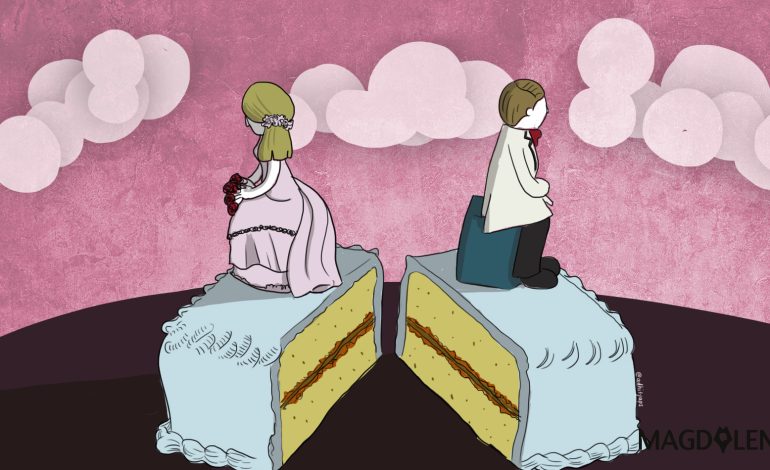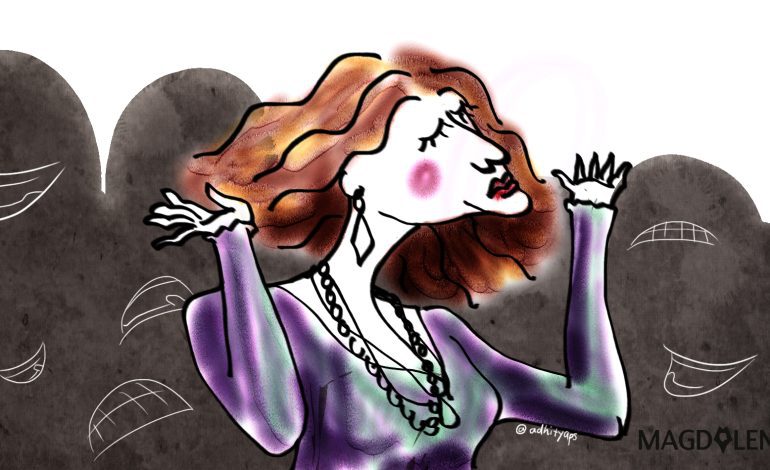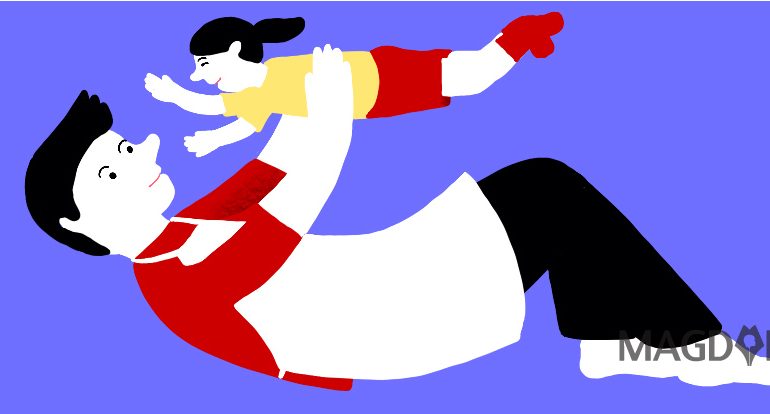“Broken Home” is Obsolete, Here is the Alternative

When my parents got divorced a month before I turned 14, people started calling me a “broken-home kid.”
Even when it was meant to be a figure of speech, and said in the nicest possible intention, for the longest time that label gave me mixed feelings at best and pain at worst. It took me a while to finally find an alternative term: children of divorce.
Now, as an adult with divorced parents, I would like to propose the idea of stopping using the term “broken home” as a way to be more empathetic and accepting to children of divorce and our lived experience.
Why is that necessary? Let’s unpack.
To begin with, attaching “broken home” as a label gives a person the stigma, stereotypes, and discrimination that come with it. Search “broken home” on Google, and you will find results talking about children’s sufferings due to no longer having both parents under the same roof, psychological issues “for not getting enough attention”, to juvenile delinquency. It has become a painfully common term to refer to children with divorced parents, used anywhere from offline social settings to clickbait online articles and even statements from government agencies.
What many may not understand is how the term “broken home” may lead to a generalization that these children are “troubled”, just because what they can call home is no longer functioning properly. However, overcoming this is not as simple as “looking at the bright side” narrative that having divorced parents does not stop many people from growing out of the pain.
While it is likely that the experience would not halt someone’s chance to succeed entirely, the way society sees them can certainly be an impediment. It is a common belief that children are the ultimate victim in a divorce, yet society’s judgment would victimize them even further.
To this day, I do not talk about my parents’ divorce so much. It is not that I am embarrassed of anything, but I want to spare myself from the prejudices.
Also read: Rethinking the Semantics (and Other Things) of Divorced Parenthood
It was not easy to bloom into adulthood while being labeled “broken.” Growing up, being called “broken home” made me feel like a damaged good, a lost cause, an easy target if I did not seem successful enough in life.
If there was anything broken, it was not me as a person, or the home I grew up in. It was my heart. It was broken because of how my parents and their relationship with me changed afterward, and because I felt helpless for not being able to be the way we were. I did not know how to mend what was broken, because as a firstborn I was busy fulfilling expectations to be my mum’s support system, while being a shining example for my younger sibling.
“Home is where the heart is” was a challenging line to hear when you were heartbroken and thus considered as “broken.” It takes a while for myself to heal. I am still healing.
Nevertheless, if there was one thing that significantly has been helping me heal, it is the understanding that I value my life as a whole more than my experience growing up and that my future still has so much room to grow. No matter how life-changing the experience had been, my parents’ divorce does not define my quality as a person, and that applies to every child of divorce.
This is why I believe that we need to start calling a spade a spade, or in this case, calling children of divorce as we are literally. It is time for ourselves, and hopefully society eventually, to give us the agency to be the best version of ourselves, in spite of our past, particularly an event that we had no control over. Being a child of divorce is a part of our lived experience, not our primary identity from which our personhood is based on.
Also read: How Being Raised by a Single Mother Has Shaped Me
We will not solve a problem by simply judging it as problematic and call it a day. Labelling children of divorce as “broken home” kids does not only affect their sense of self as their family disintegrates, but also puts them in the corner as if they are being given a permanent time-out because their parents’ decision has made them beyond repair.
For many years, I wondered if I were actually beyond repair, thus deserving to be called “broken home.” In the process of trying to grow out of that label, I started to redefine what home means to me, and how “home is where the heart is” applies into my life.
As a child of divorce who later moved out of her hometown for studies and work, leaving my childhood home felt bittersweet to me. The privilege of living in different places means a repeated process of getting myself acquainted with my surroundings, learning how to read the room and placing myself in it, developing new relationships and support systems, and when I take a moment to look around, it turns out that I have made myself a home. It is the feeling of being at peace and welcomed for who I am, because now I have a destination, be it a place or a person, to come home to.
Apparently, changing the terms may bring a tremendous shift of mindset. As I started calling myself a child of divorce, I learned to take matters into my own hand to mend what was broken, while allowing myself to be vulnerable and seek support when things get tough.
Slowly but surely, home is once again where the heart is – not necessarily geographical and made of walls, doors, and windows. I also get to feel at home when I am with those near and dear to me, despite the actual distance, and that is like getting myself a second lease on life after being considered “broken.” The difference is this time I get to build my own home.






















